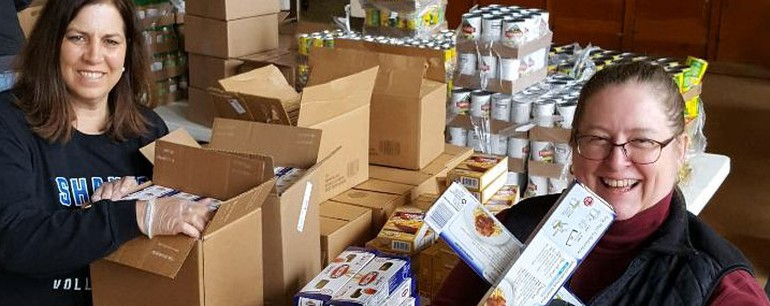Catholic Charities Adapts in Face of Pandemic
- Posted By: Catholic Charities
- Category Featured, General

Catholic Charities of the Diocese of Albany Adapts Services in Face of Pandemic
Seniors, homeless individuals, the immunocompromised, those without health insurance – in short, the vulnerable – are feeling the disproportionate effects of the COVID-19 outbreak. People living paycheck to paycheck have been laid off, while seniors are ordered to remain home, without the promise of outside communication or socialization.
“Quarantine, layoffs – these are things that directly impact the people who rely on our services,” said Vincent W. Colonno, CEO of Catholic Charities, “It’s one of those times where you hate to see this increased need, but we’re happy that we’re here to help in any way we can.”
For Catholic Charities, that means adapting service models across the Diocese. Take-out meals are being offered at soup kitchens; care management is being conducted via telephone; and seniors are receiving wellness calls and frozen dinners. Catholic Charities’ agencies are finding new and innovative ways to serve the community while also maintaining a large proportion of its services.
“One thing we can do, and we’re glad to do, is make sure people are taken care of,” said Colonno, “In many cases, we’ve been able to do just that. Our Meals on Wheels program in Schenectady County is still making deliveries, our food pantries and soup kitchen have kept serving meals, even our shelters remain open and operational."
Providing care in a crisis is not without its challenges. The organization is already seeing new faces, individuals impacted by layoffs as a result of the coronavirus. It expects to see increased demand at its food pantries, emergency assistance and domestic violence programs as the spread of the coronavirus progresses.
Catholic Charities is asking people to volunteer, donate protective supplies (such as gloves, masks or wipes), or to make a monetary donation to help meet the increased and changing needs. Those looking to help can contact (518) 453-6650 and leave a message.
A full list of program changes can be seen at www.ccrcda.org.
